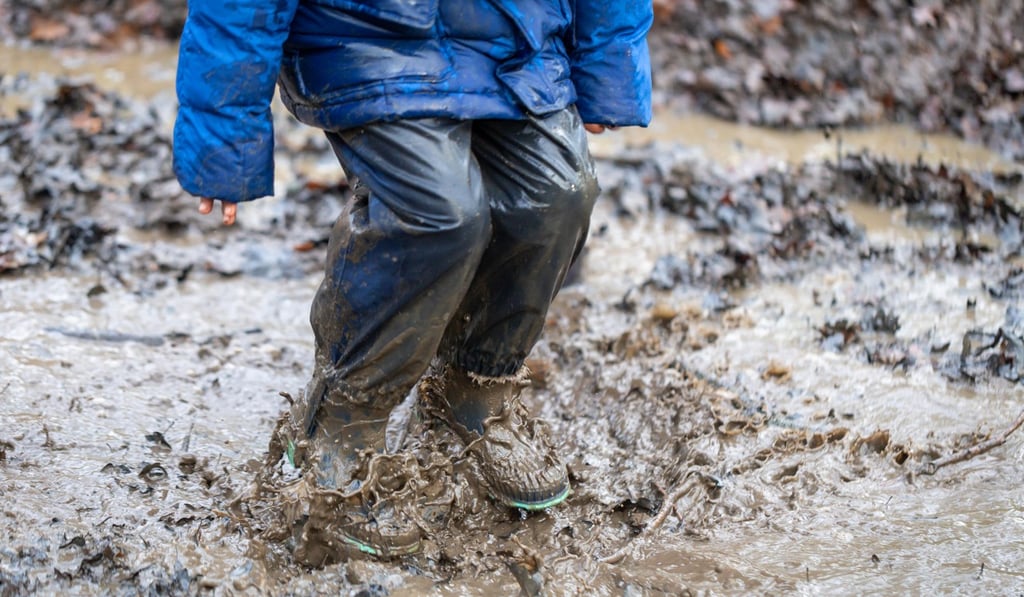Should kids play in dirt and puddles? Gut health improves, research suggests, but allergy link not clear
- Many parents – especially in Hong Kong – fear their children will become ill if they get wet or dirty
- But advocates of “messy play” say beneficial exposure to microbes develops gut health and can even boost creativity and reduce stress

When a Hong Kong mum received “death stares” after she let her toddler splash in fresh rain puddles, she took to Facebook to better understand why she had been publicly shamed.
Her post explained how her daughter’s joyful laughs had triggered horrified expressions from passers-by who muttered “dirty dirty” in disgust.
The online community rushed to her support and within hours there were hundreds of comments from parents sharing their own experiences and posting photos of their children playing in the rain.
Most of the parents felt that criticism came from some elderly people, who feared that getting wet or dirty could cause illness. But there were also genuine concerns about chemicals and pollutants that could contaminate puddles in a busy urban area.

So is it safe to play in “dirty” puddles and are there any benefits to messy play?